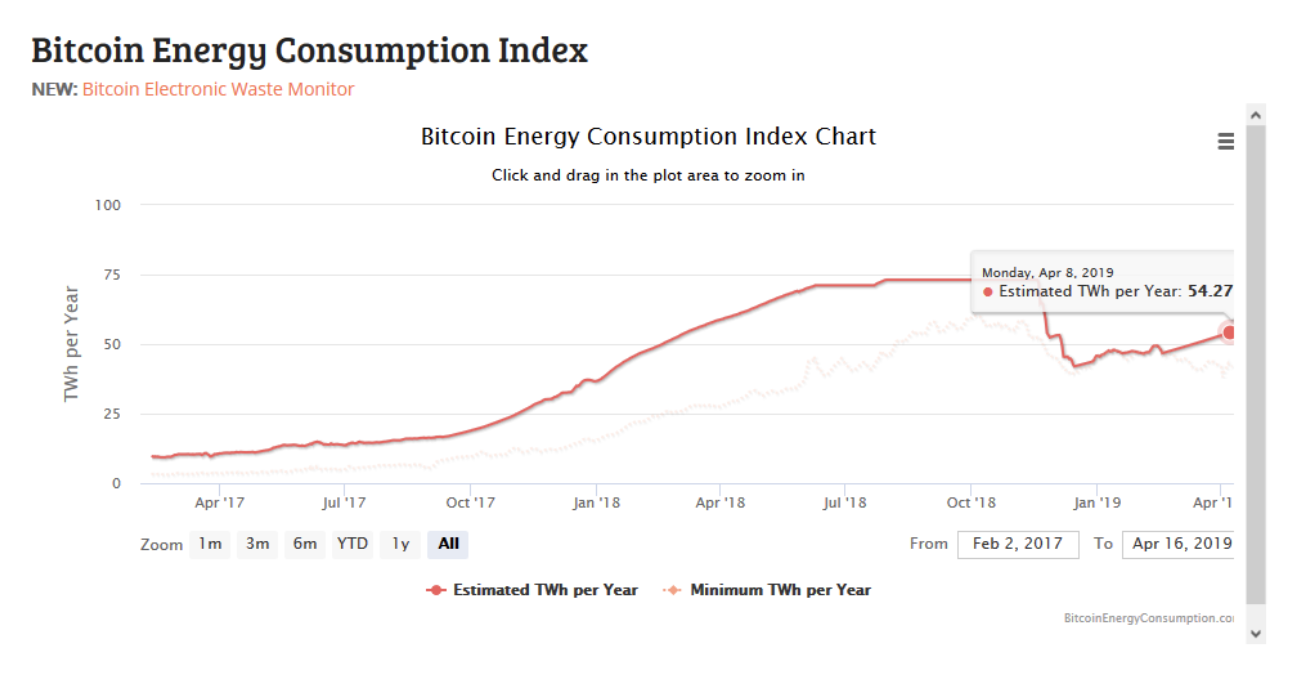China has an ongoing love-hate relationship with blockchain technology. On one hand, the government openly touts blockchain tech, going as far as claiming it has bigger potential than the internet itself. On the other hand, the Middle Kingdom cannot stand cryptocurrencies like bitcoin and has already made several rabid attempts to scuttle the industry.
And now reports have emerged that Beijing is seriously mulling banning bitcoin mining within its borders because it’s “seriously wasteful on resources”.
The government says crypto mining is too power-hungry and leads to massive greenhouse gas emissions. Never mind the fact that as the world’s leading maker of mining hardware and home to the largest mining companies, China is the undisputed king of bitcoin mining and the biggest recipient of mining profits.
Nevertheless, Beijing is going to be a bit more magnanimous this time around. Instead of going at it the old-fashioned heavy-handed way, the National Development and Reform Commission (NDRC), the country's chief planning regulator, has added bitcoin mining to a list of 450 activities on which it plans to seek public opinion whether to encourage, restrict or eliminate altogether. The condemned activities have failed to meet relevant laws and regulations, are unsafe, waste resources or pollute the environment.
Bitcoin mining presumably fails the majority of these criteria.
Wasting energy
The sheer infamy that bitcoin mining has gained in some jurisdictions like China seems at least partly deserved.
In a typical mining rig, banks of powerful computers are dedicated to cracking labyrinthine blockchain codes and are rewarded with bitcoin or some other cryptocurrency.
Now, the Chinese government has one thing right —bitcoin mining is an extremely energy intensive endeavor.
Related: Gold Prices Stuck In Limbo
According to Alex de Vries, a bitcoin specialist at PwC, bitcoin servers across the globe consume a minimum of 2.55 gigawatts (GW) of power, which amounts to 22 terawatt-hours (TWh) of energy per year. That’s almost as much energy as Ireland’s annual consumption.
Digiconomist places the estimate much higher—41.98TWh at the lower end and 54.43TWh at the higher end for a mean estimate of 48.21TWh, ~9x what Google servers consume worldwide and more than New Zealand’s, Portugal’s, Hong Kong’s or Singapore’s annual consumption.
There are estimates that nearly three-quarters of cryptocurrencies are mined in China, so overall power consumption could be much higher than what these figures suggest.

(Click to enlarge)
Source: Digiconomist
Yet, the huge energy footprint per se might not be Beijing’s biggest concern. After all, China is the world’s largest power producer, churning out a staggering 6,310 TWh of power each year. Even at double the above figures, crypto mining probably consumes less than 2 percent of China’s total output.
China’s biggest bone of contention could be the amount of greenhouse gases that accompany every extra TWh of energy that goes to crypto mining. China’s is the world’s biggest consumer of coal, much of which goes to power generation. According to this paper on Nature.com, China’s crypto mining operations could be spewing out 10 million tons of carbon dioxide into the atmosphere each year. China already accounts for 27 percent of global carbon dioxide emissions. But more worryingly, emissions have begun rising again, climbing for two consecutive years after remaining flat in the period spanning 2009-2016.
Perhaps it’s not by coincidence that China’s increase in harmful emissions corresponds with a meteoric expansion by the bitcoin and crypto industries. Left unchecked, China’s crypto mining industry could be emitting hundreds of millions of tons of carbon dioxide into the environment every year within a decade or two.
Good for the industry
Even assuming the government quickly gets its wish and bitcoin mining is finally outlawed, it’s probably going to take years before the last big-time miners finally hang up their digital boots.
And even then it won’t be as disastrous for the industry as you might first imagine.
Apparently, large miners got wind of Beijing’s plans some time ago and have been setting up shop in other jurisdictions. Further, some analysts think paring back the Chinese industry is good for everybody else. Ben Kaiser, a Princeton blockchain researcher, told Wired magazine that the exit of large miners will even the playing field by giving smaller miners a chance to compete.
By Alex Kimani for Safehaven.com
More Top Reads From Safehaven.com
















